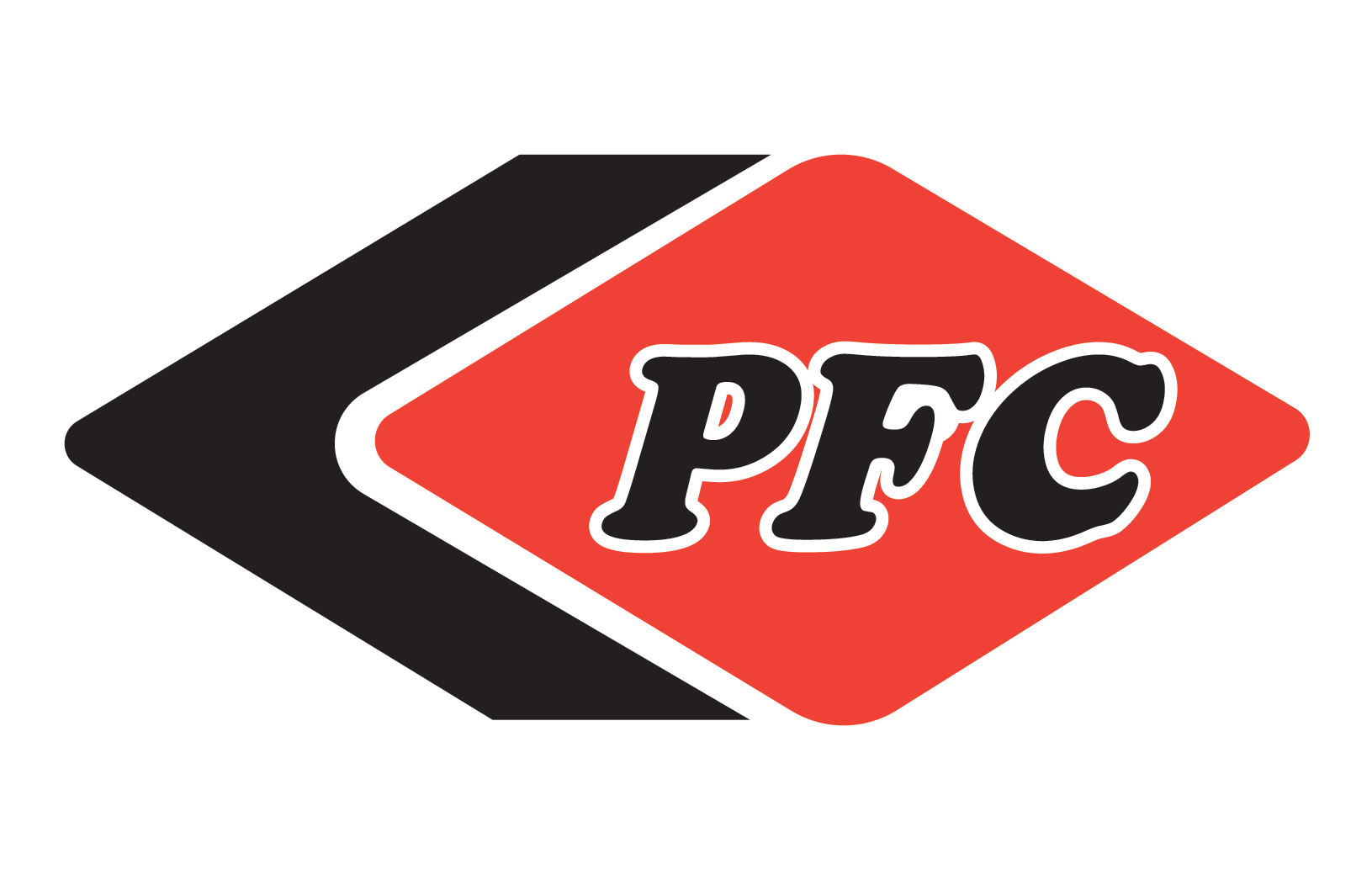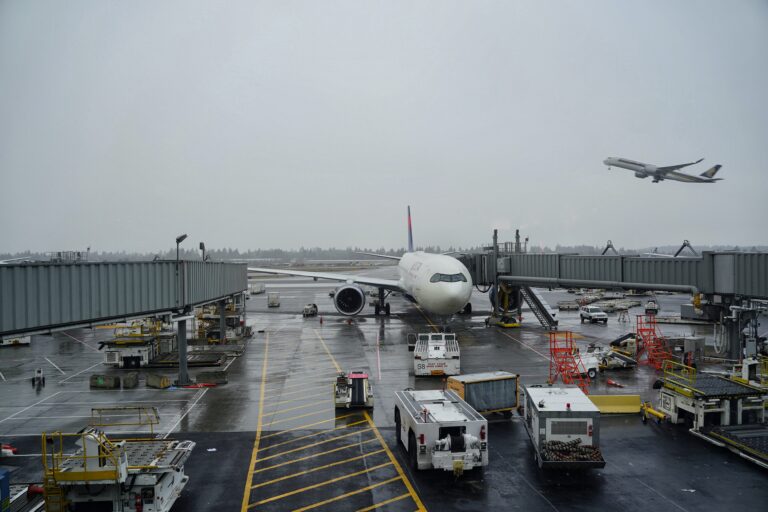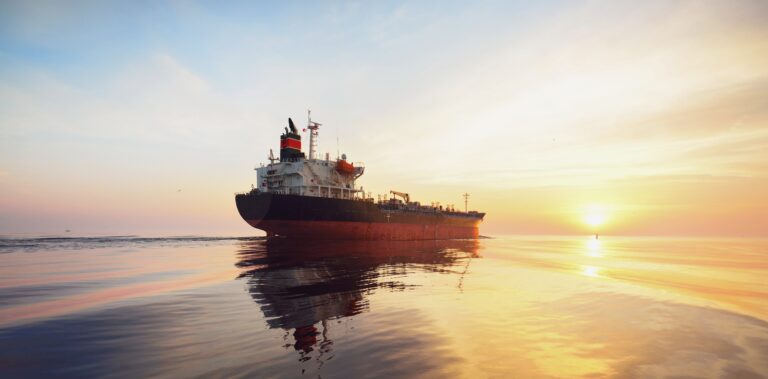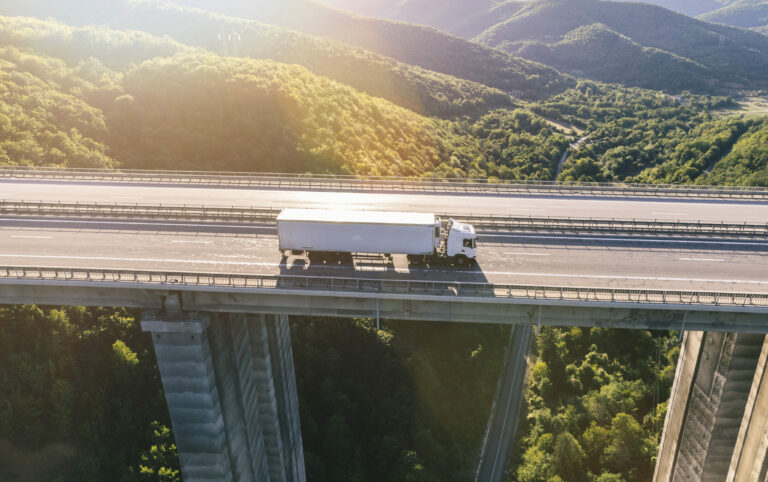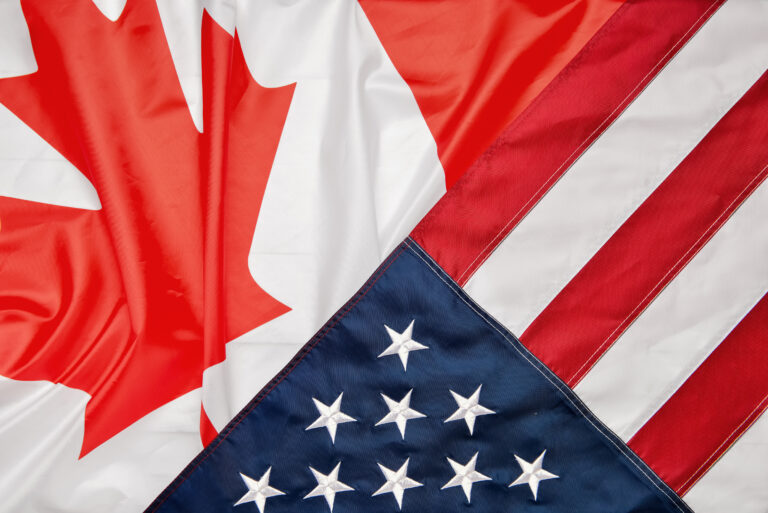Importing a Vessel into Canada Governed
by Canada’s Coasting Trade Act
There are many rules and regulations that vessel owners/operators must consider when importing a vessel into Canada. The operation of foreign vessels in Canada is regulated by the Government of Canada’s Coasting Trade Act and enforced by several federal and provincial departments and agencies.
Below we provide an overview of the processes and procedures required when planning to import a boat into Canada. For your convenience, we have included the following Importing a Vessel into Canada Guide with additional details to download.
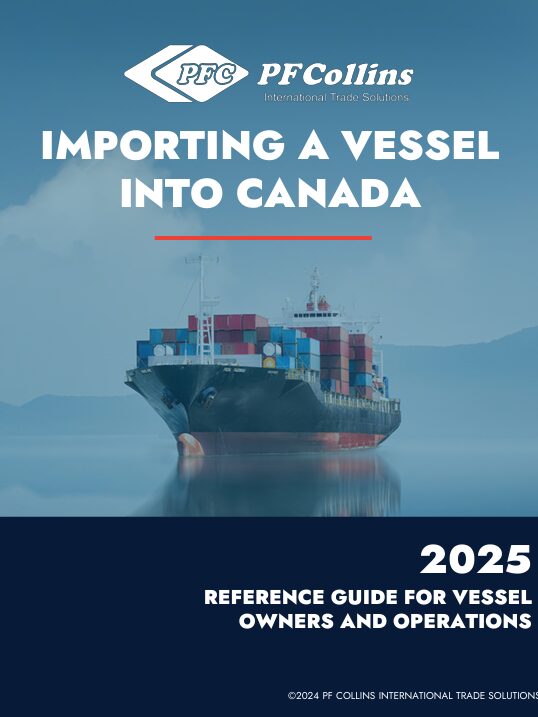
Canada’s Coasting Trade Act
The Coasting Trade Act protects Canada’s marine industry by limiting vessel operations within its waters to Canadian-registered, duty paid vessels. While priority is given to these vessels, there are provisions for the temporary entry of foreign or non-duty paid vessels. This is provided there are no Canadian-registered vessels available or capable to perform the required scope of work.
Foreign or non-registered, duty paid vessels must obtain a Coasting Trade Licence prior to beginning operations in Canada. Owners or operators (or agent on their behalf, such as PF Collins) must submit an application to the Canada Border Services Agency (CBSA) or the Canadian Transportation Agency (CTA). The success of the application is dependent upon the suitability and availability of any Canadian-registered vessels to complete the work.
Exemptions Under the Coasting Trade Act
Exemptions for Seismic Vessels
To improve access to better seismic data for offshore development, Canada’s 2012 Economic Action Plan amended the Coasting Trade Act to remove the requirement for foreign seismic vessels to obtain a Coasting Trade Licence when undertaking oil and gas exploration on the continental shelf of Canada. Seismic vessels must still obtain a Coasting Trade Licence when conducting activities in the Territorial Sea of Canada.
Exemptions for Importing a Vessel under CETA
In 2017, the Canada-European Union Comprehensive Economic and Trade Agreement (CETA) introduced provisions to allow European Union entities to provide specific services without the requirement of a Coasting Trade Licence. These services include:
- Feeder service between the Ports of Halifax and Montreal
- Repositioning of empty containers
- Dredging services
For more information about importing a vessel under CETA visit our dedicated page below, email us at info@pfcollins.com or call us toll-free at 1-800-763-2255
Duty and Tax Considerations When Importing a Vessel
All vessels entering Canada for temporary periods must pay the applicable duty and tax.
Imported vessels are typically subject to a duty rate of 25% of the fair market value, prorated for each month the vessel is operating in Canada. The duty rate is also subject to any free trade agreements that apply (e.g. CETA).
In addition, imported vessels are subject to the federal Goods and Services Tax (GST), calculated at a rate of 5% of the monthly duty-paid value of the vessel. The GST is fully refundable when the importer is a GST-registered entity with the Government of Canada.
A federal Excise Tax is also applied on marine diesel fuel, added to the normal domestic fuel price.
Other Considerations
Immigration for Foreign Crew and Shore-Based Personnel
Foreign crew entering Canada to work onboard the vessel must obtain a work permit prior to employment.
Service Canada issues Labour Market Impact Assessments (LMIA) for crew onboard foreign vessels approved by the CBSA. When assessing applications, Service Canada expects Canadians to have the first opportunity to fill the positions. Therefore, the application process requires advertising for onboard positions and the inclusion of a succession plan for Canadian personnel.
Local petroleum boards may also require local benefits provisions be met for operations related to offshore oil and gas. Petroleum boards in Canada include the Canada-Newfoundland and Labrador Offshore Petroleum Board and Canada-Nova Scotia Offshore Petroleum Board.
Safety Inspections
As a pre-requisite for the issuance of a Coasting Trade Licence, the vessel must undergo inspection at its first port of call in Canada to ensure compliance with the safety requirements of Transport Canada, the Canadian Coast Guard, and the local petroleum board.
Information & Resources
To further clarify and assist with importing a vessel into Canada, please see the following resources:
We’re Here to Help!
From drillships to dredgers, we provide customs consulting and clearance services for over 70% of commercial vessels being imported into Canada.
Whether you need help with the importation of a vessel, assistance with crew changes, or expediting ships spares, our full suite of project logistics services ensure a successful project from start to finish.
For more information on how to import a boat into Canada, please

